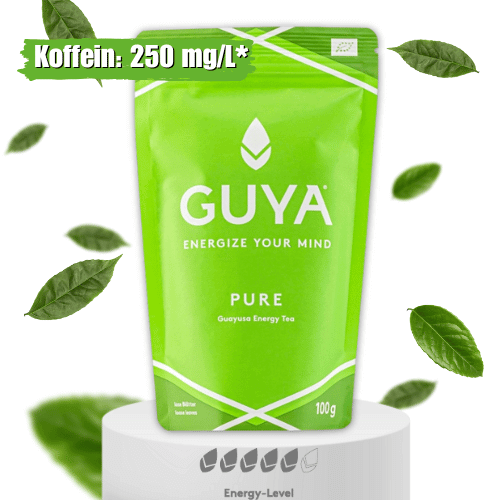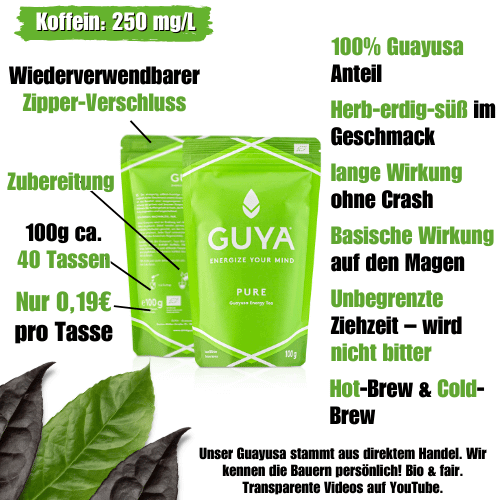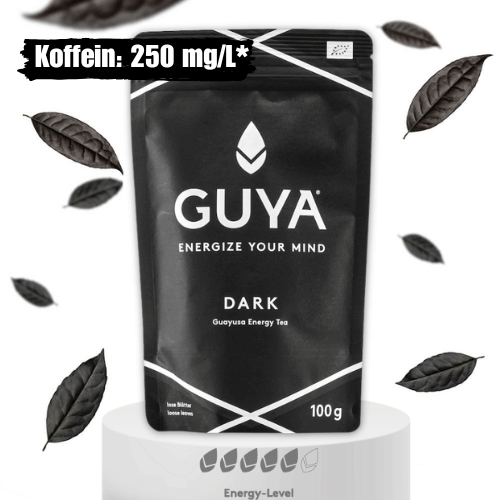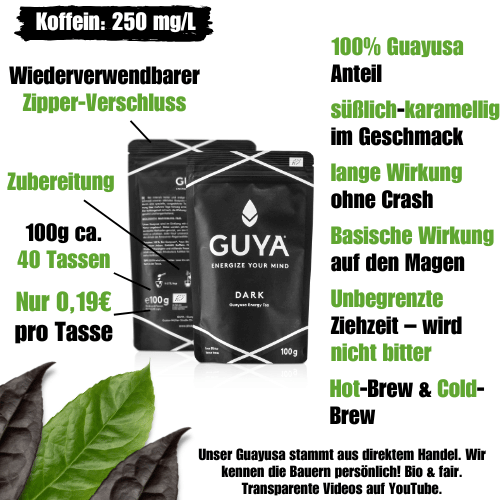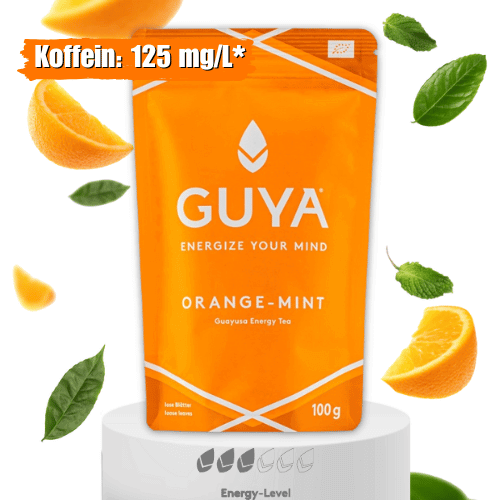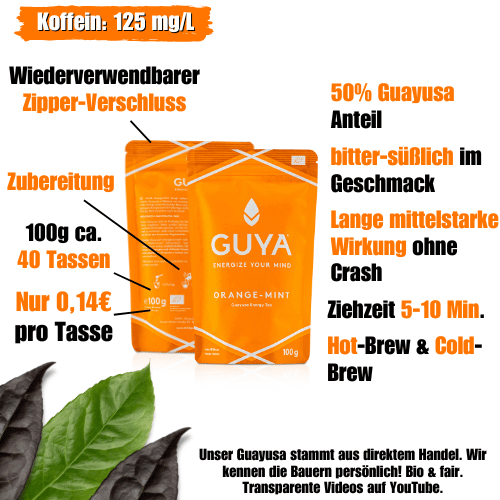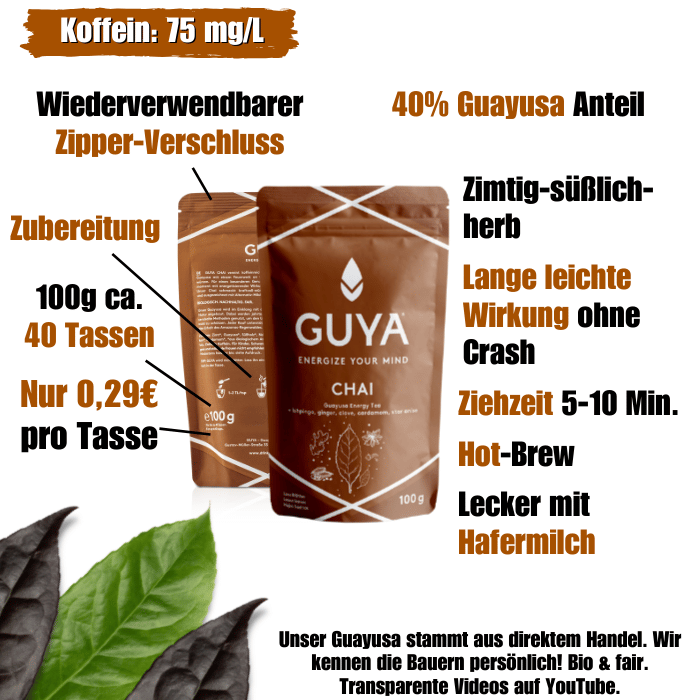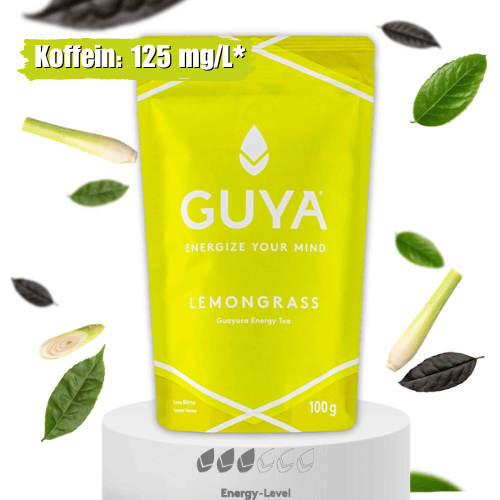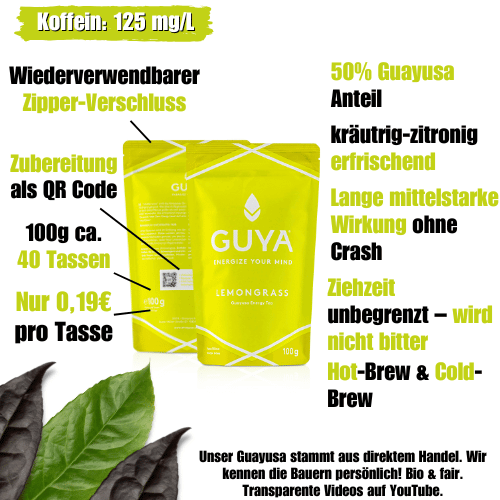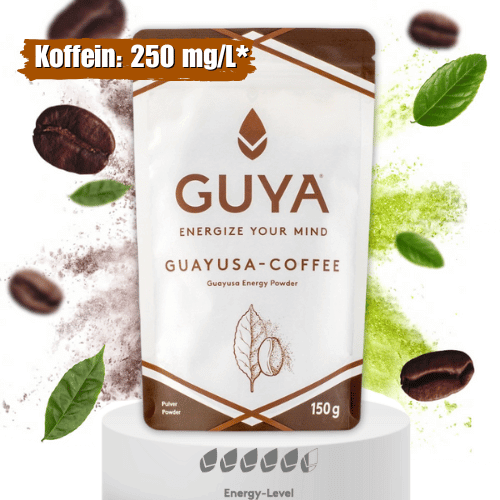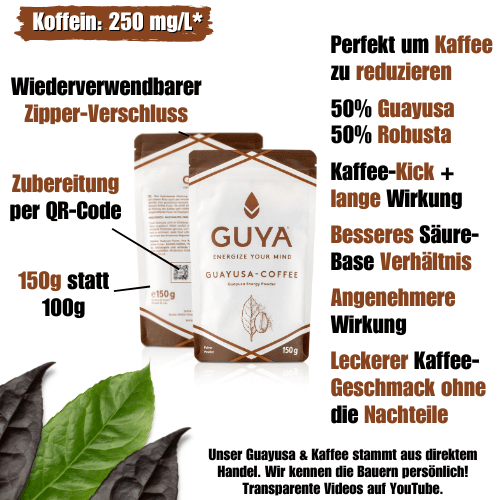Quercetin - what it's good for & where it happens

1. Introduction: What is Quercetin?
Quercetin is a secondary plant fabric that is for its antioxidative and anti -inflammatory properties is known. It comes in many foods like Apple, onions, berries, Lemon grass and green as well Guayusa tea before and is as valuable support for that Immune system, the Health of Intestinal And the general Cell health estimated. But What is quercetin for Exactly good? It protect the Cells Before damage caused by free radicals, Reduces inflammation and can even with Histamine intolerance help.
In this article you will find out which Groceries are particularly rich in quercetin which plant sources You can use and what health advantages this versatile fabric offers. You will also receive an overview of scientific studies, side effects and tips for secure use. Regardless of whether you consider it for your immune system, your intestine or as a nutritional supplement - here you will find all the important information.
Table of contents
- Introduction: What is Quercetin?
- What is Quercetin good for?
- Quercetin in nutrition
-
Quercetin and its effect
- Security and side effects
- Conclusion
2. What is Quercetin good for?
Quercetin is a versatile plant substance that convinces with its health -promoting properties. It plays an important role as antioxidant, the free radical neutralizes and thus protects the cells from damage. In addition, it works anti -inflammatory, What at chronic inflammation and Diseases How arthritis can be advantageous. But that's not all - quercetin supports also that Immune system, By the Immune system strengthens and makes the body more resistant to infections.
In the following we take a detailed look at the three main areas in which quercetin is particularly useful: its role as antioxidants, its anti -inflammatory properties and its importance for strengthening the immune system.
2.1. Quercetin as an antioxidant

Quercetin Is one of the most effective natural Antioxidants And protects your cells from damage caused by free radicals. These arise from environmental factors such as stress, UV radiation or pollutants and can accelerate the aging process and increase the risk of chronic diseases.
As antioxidants, it neutralizes free radicals before they can do damage, thus strengthening cell health. Studies show that this plant substance is an important role in the prevention from oxidative stress plays and contributes to the Skin aging to slow, the Cardiovascular system to protect and that immune system to strengthen.
By berries like apples Guayusa-Tea or Lemon grass Install your diet, you can use the antioxidant advantages and support your health in the long term.
2.2. Anti -inflammatory properties
Quercetin is for his anti -inflammatory properties known at the chronic diseases How arthritis or inflammatory Human diseases helpful be. It works by it the activity from Inflammatory enzymes How the cyclooxygenase (COX) inhibits and the production of inflammatory molecules such as cytokines reduced.
It could be in Studies For example, it can be shown that quercetin can be effective when relieving inflammation by reducing oxidative stress and modulating the immune response. These properties make it a promising natural active ingredient in inflammatory processes.
2.3. Quercetin for the immune system
Quercetin supports your immune system in a variety of ways. It strengthens the Defense, by the activity of immune cells like Macrophages and T cells promotes and the production of inflammatory cytokines inhibits. In addition, of course, it acts as antioxidants that supports immune function.
Another study shows that quercetin at the Prevention from Infections can help, by it the Virus replication inhibits and the Resistance of Body against Increased pathogens. These properties make quercetin one effective natural Active ingredient for the strengthening of Immune system.
3. Quercetin in nutrition
Quercetin is a natural part of many vegetable food and plays an important role in a healthy diet. It mainly comes into fruits, vegetables, herbs and certain drinks such as Lemon grass tea, Guayusa-Tea and green tea before. With the correct selection of food, you can naturally cover your needs.
In the following we will show you which Groceries are particularly rich in quercetin which plant sources There is and how you can effectively integrate them into your daily diet.
3.1. Quercetin in food
Foods with a high quercetin content are versatile and easy to integrate into everyday life and because it is exclusively plants that quercetin have no problem for vegans. Fruit and vegetable varieties such as onions, apples, berries and broccoli are particularly rich in this secondary plant substance. These foods not only contribute to a balanced diet, but also offer antioxidant and anti -inflammatory advantages.
According to a study Contain red onions the highest concentrations of quercetin, followed by apples and certain berry species such as blueberries and black currants.
Further interesting information on food with health -promoting ingredients can be found in our article about the Effect of lemon grass tea, also quercetin and also Citral and Apigenin Contains.
3.2. Plants with a high quercetin content

Quercetin is a natural flavonoid that occurs in many plants. Here are ten vegetable foods with a particularly high quercetine content, indicated in milligrams (MG) per 100 grams (G):
- Capers: 233.8 mg/100 g
- Red onions: 35.0 mg/100 g
- Asparagus: 14.0 mg/100 g
- Kale: 7.1 mg/100 g
- Blueberries: 7.0 mg/100 g
- Cranberries: 13.0 mg/100 g
- Apples: 4.9 mg/100 g
- Broccoli: 3.0 mg/100 g
- Spinat: 4.0 mg/100 g
- Green beans: 3.9 mg/100 g
These plants are not only rich in quercetin, but also offer other health benefits.
In order to integrate quercetin into your everyday life through a simple drink, you can tea like Lemon grass tea, Hibiskus tea (small quantities) or also Guayusa tea drink.
3.3. How you can cover your needs
Here are two concrete examples of how you can cover your daily need - without having to consume food supplements:
1. Quercetin-rich salad with red onions and apples
- Ingredients: 1 red onion, 1 apple, a handful of spinach, 50 g walnuts, 1 tablespoon of olive oil, 1 teaspoon of lemon juice.
- Preparation: Cut the onion and apple into fine strips. Put them in a bowl together with spinach and walnuts. Mix olive oil and lemon juice to make a simple dressing. Put over the salad and enjoy.
- Advantages: Red onions deliver about 35 mg per 100 g, and apples also contribute to 4.9 mg/100 g.
- Beverage: Guayusa-Tee with hibiscus
2. Berries smoothie with blueberries and lemon grass tea
- Ingredients: 200 g blueberries, 1 cup of cooled Lemon grass tea, 1 banana, 1 teaspoon of honey.
- Preparation: Put the blueberries, the lemong grass tea, the banana and honey in a blender and puree everything into a creamy smoothie. Enjoy immediately.
- Advantages: Blueberries deliver approx. 7 mg per 100 g, and the lemon grass tea complements the smoothie with additional flavonoids.
Through such simple recipes, you can naturally fill up your quercetin household through plants and at the same time enjoy healthy, tasty dishes.
4. Quercetin and its effect
To give you an overview, you will find the six most important effects of quercetin:
- Protect the Cells through antioxidant properties before damage caused by free radicals
- Reduces inflammation and supports the relief of chronic inflammatory diseases
- Strengthened the immune system and increases the resistance to infections
- Supports the Health of Intestinal and has a positive effect on the intestinal flora
- Can at Histamine intolerance help, by inhibiting the distribution of histamine
- Promotes the Heart health, by regulating blood pressure and cholesterol levels
If you want to immerse yourself in the effect much more detail, then you can do this in our article Effect of quercetin do. This offers deeper insights into the health benefits and scientific background.
5. Security and side effects
Quercetin As a rule secure, Especially when it above the Nutrition is recorded. At a high dosage through Dietary supplements or with sensitive persons However, can Occasionally side effects appear. Here are the three most common side effects of quercetin:
- Indigestion such as nausea, stomach cramps or diarrhea with high dosage
- Headache And dizziness, especially when taking quercetine supplements for the first time
- Allergic reactions Like rashes or itching in sensitive people
To avoid side effects, you should stick to the recommended dosage and pay attention to high -quality products. You can find more about this in our article on the Side effects of quercetin.
6. Conclusion
Quercetin is an impressive secondary plant substance that convinces with its versatile health benefits. Whether as antioxidants, anti -inflammatory inhibitors or to strengthen the immune system - quercetin offers numerous ways to promote your health naturally. By regularly consuming quercetine-rich plants and foods such as apples, onions and berries, you can support your body and at the same time benefit from the other nutrients of these foods.
Also drinks like ours Lemon grass teathat is rich in flavonoids, or Guayusa-Tea offer an excellent way to enjoy quercetin and other healthy ingredients. Also Hibiskus tea is a refreshing companion that offers further health benefits in addition to antioxidant properties.
It is a natural companion for a healthy lifestyle. Regardless of whether you take it up through nutrition, tea or targeted nutritional supplements - there are numerous ways to benefit from this versatile active ingredient and strengthen your health in the long term.





